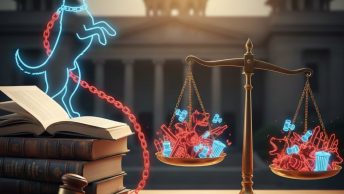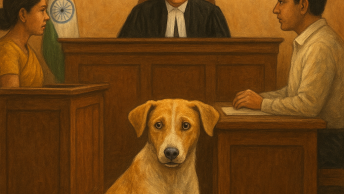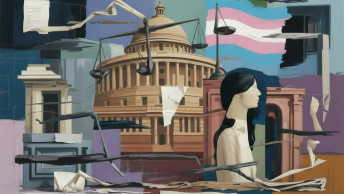The Transgender Persons (Protection of Rights) Bill, 2016 (‘the Bill’), has failed the transgender community, and severely waters down the guarantees of the NALSA judgement. (Its several critiques can be found here and here). One provision, in particular – that of a screening committee- is a blatant violation of their right to self-identification recognised by the NALSA judgement. However, the debate surrounding legal recognition and self-identification of gender identity is not unique to India. The domestic discourse needs to be informed by contemporary developments in other jurisdictions.
Under Chapter III of the Bill, a District Screening Committee will look into applications by transgender persons, upon whose recommendations, a ‘certificate of identity as transgender person’ will be issued. There are no guidelines as to what this assessment would entail, or how it will be carried out. The composition of the proposed committee is to comprise of a chief medical officer, a district social welfare officer, a psychologist or psychiatrist, a representative of the transgender community and an officer to be nominated by the appropriate government. At the outset, it remains unclear how there can be a representative of the transgender community, before any person has been recognised by this committee as a ‘transgender’. This is only indicative of the non-application of mind of the drafters.
In all likelihood, these provisions have been informed by UK’s more comprehensive Gender Recognition Act, 2004, (‘the UK Act’) which similarly provides for a Panel that will consider applications for grant of a Gender Recognition Certificate, and necessitates a doctor’s diagnosis of Gender Dysphoria , among other things. Notably, however, the UK Government is planning to reform these rules to de-medicalize and make the process easier. In July 2017, it announced public consultations on legal gender recognition and a model of self-determination. Similarly, even the Scottish government is reviewing their recognition framework.
Legal gender recognition within contemporary socio-legal discourses is looked at as a privilege conferred on a few, and not a right. However, it needs to be understood that self-determination or identification is a basic human right. It preserves autonomy and personhood. A person’s gender identity is their strong internal sense of being a particular gender. Any third-party supervision, especially on medical grounds, undermines the transgender persons’ understanding of gender, suggesting that they are incapable of assessing their own identity status, and thus require external oversight.
Medical oversight, in particular, encourages pathologisation of the transgender identity, viewing it from the lens of a disorder or mental illness. Requiring any form of medical supervision indicates that transgender persons, unlike others, do not possess full control of their metal capacities. It is patently discriminatory, and has an undertone of pathologisation. Such processes are informed by a conflation between medical intervention that could be argued to require some medical necessity, and legal gender recognition where no such pre-requisite is justified.
The Bill, unlike the UK act, does not require a diagnosis of gender dysphoria. However, it provides no prescriptions at all, leaving the procedure to be followed uncertain. This approach is similar to that in Netherlands and Ireland; they too do not necessitate a medical history, and require transgender persons to accept that they are disordered for legal recognition of their gender. However, they still require a statement from an expert medical professional, as part of their application.
The State acting as a gatekeeper of gender stands in violation of several rights-based instruments, in addition to human dignity. In particular, the Yogyakarta Principles, built upon by the Yogyakarta Principles +10, crystallize the status of human rights law in relation to gender identity and sexual orientation; both recognise the right to legal recognition based in self-determination. This is informed by an overlap of several other rights, including a right to private life and to be free from cruel, inhuman and degrading treatment. Not only has the right to privacy and bodily autonomy recently been upheld as a part of one’s right to life by the Indian Supreme Court in the Puttaswamy case, its NALSA judgement explicitly recognises a right to self-identification of transgender persons within Article 19(1)(a) of the Indian Constitution.
The proposed screening committee will stand as a gatekeeper to one’s gender identity, contesting one’s own understanding of self – thus standing at cross-roads with the right to self-identification. Further, there exist no particulars or guidelines of the procedure to be followed and requirements for legal recognition; this is left up to the non-democratic rule-making authority, and can be viewed as an excessive delegation of legislative powers. Moreover, the absence of any prescribed methodology will make the process subjective and arbitrary, attracting the prohibition against arbitrariness enshrined in Article 14 of the Indian Constitution.
India is not amending an existing legislation, rather, enacting a new framework of rights. The legislature must take note of these developments and redraft the Bill to make it consistent with the global rights discourse. Anything short of a model of self-determination will not only be regressive, given the developments at both the international level and in other jurisdictions, but will also be oppressive and discriminatory.
The discourse on self-determination is changing worldwide, and several countries are in the process of, or have already adopted a rights-based approach to gender recognition. The self-declaration or identification model was first adopted by Argentina, and several other jurisdictions followed suit, such as Belgium, Denmark, Ireland, Malta, Norway, Portugal and Sweden. Even Pakistan redrafted its 2017 Bill that proposed a similar screening committee after consultations with the transgender community, and now allows for self-identification.
The Bill is currently pending before the Parliament, and an updated draft was supposed to be tabled after incorporating suggestions of the Parliamentary Standing Committee that too emphasised the right to formal recognition of one’s self-defined gender identity.The current draft of the Bill requires a complete overhaul for it to be consistent with human rights instruments and constitutional guarantees. It invalidates the lived experiences of innumerable transgender persons.
Mihika Poddar is currently a 5th Year student at the West Bengal National University of Juridical Sciences.








Excellent post!
Can you be more specific about the content of your article? After reading it, I still have some doubts. Hope you can help me.
Your article helped me a lot, is there any more related content? Thanks! http://gate-io-vs-kucoin.cryptostarthome.com
Thanks for sharing. I read many of your blog posts, cool, your blog is very good.